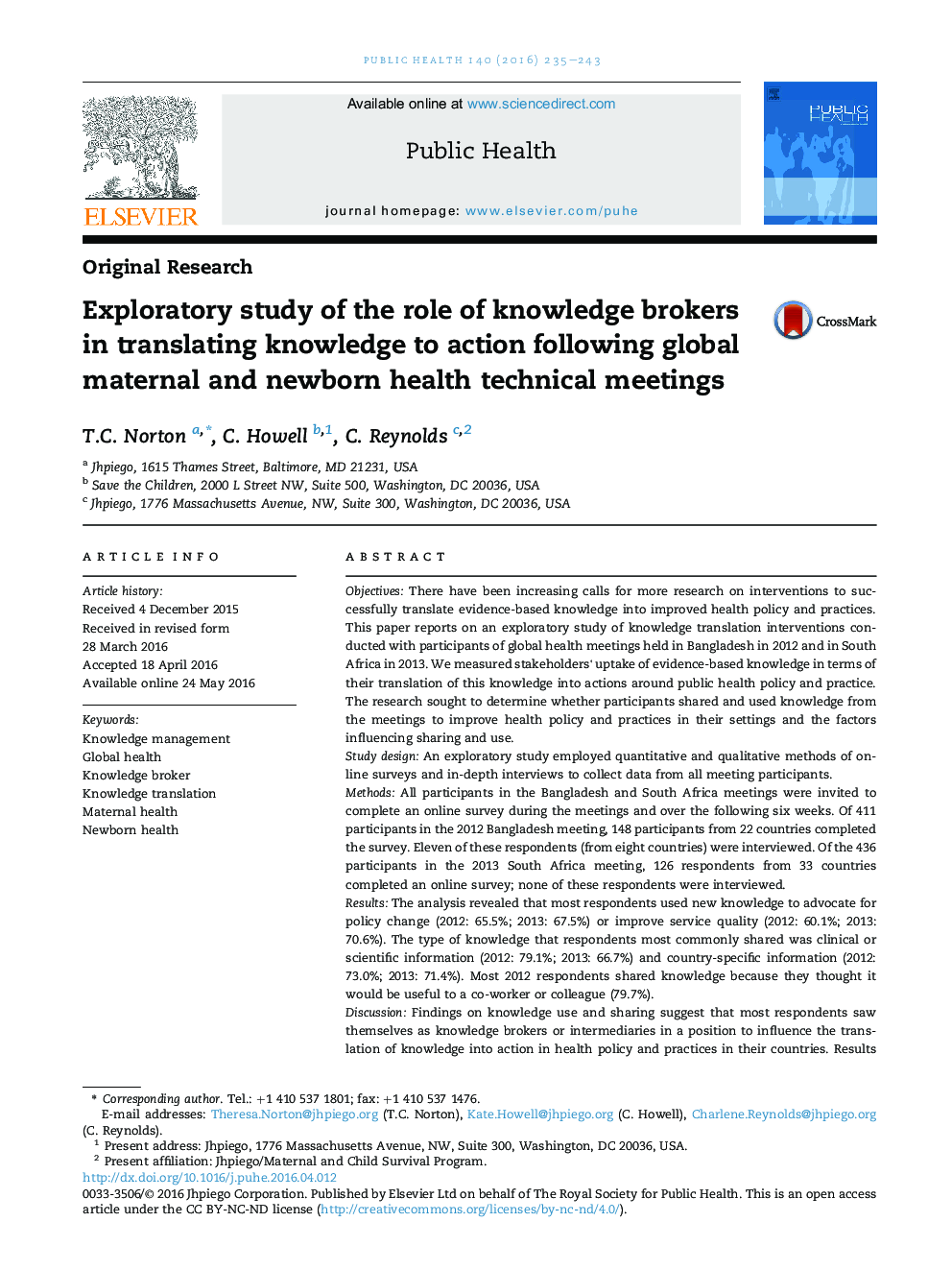| کد مقاله | کد نشریه | سال انتشار | مقاله انگلیسی | نسخه تمام متن |
|---|---|---|---|---|
| 5122847 | 1487203 | 2016 | 9 صفحه PDF | دانلود رایگان |
- Engagement of technical meeting participants before, during, and after a meeting is needed to translate knowledge.
- Findings suggest that most respondents saw themselves as knowledge brokers driving knowledge translation in their countries.
- Meeting participants who view their role as knowledge brokers serve an important function in translating knowledge to action.
- Supporting knowledge brokers in adapting knowledge to local context is promising for improving health policy and practice.
ObjectivesThere have been increasing calls for more research on interventions to successfully translate evidence-based knowledge into improved health policy and practices. This paper reports on an exploratory study of knowledge translation interventions conducted with participants of global health meetings held in Bangladesh in 2012 and in South Africa in 2013. We measured stakeholders' uptake of evidence-based knowledge in terms of their translation of this knowledge into actions around public health policy and practice. The research sought to determine whether participants shared and used knowledge from the meetings to improve health policy and practices in their settings and the factors influencing sharing and use.Study designAn exploratory study employed quantitative and qualitative methods of online surveys and in-depth interviews to collect data from all meeting participants.MethodsAll participants in the Bangladesh and South Africa meetings were invited to complete an online survey during the meetings and over the following six weeks. Of 411 participants in the 2012 Bangladesh meeting, 148 participants from 22 countries completed the survey. Eleven of these respondents (from eight countries) were interviewed. Of the 436 participants in the 2013 South Africa meeting, 126 respondents from 33 countries completed an online survey; none of these respondents were interviewed.ResultsThe analysis revealed that most respondents used new knowledge to advocate for policy change (2012: 65.5%; 2013: 67.5%) or improve service quality (2012: 60.1%; 2013: 70.6%). The type of knowledge that respondents most commonly shared was clinical or scientific information (2012: 79.1%; 2013: 66.7%) and country-specific information (2012: 73.0%; 2013: 71.4%). Most 2012 respondents shared knowledge because they thought it would be useful to a co-worker or colleague (79.7%).DiscussionFindings on knowledge use and sharing suggest that most respondents saw themselves as knowledge brokers or intermediaries in a position to influence the translation of knowledge into action in health policy and practices in their countries. Results suggest that supporting knowledge brokers working in a local and regional context to spur change, as described in the paper, has the potential to improve health outcomes. Further research is needed to isolate specific interventions and their knowledge translation outcomes.
Journal: Public Health - Volume 140, November 2016, Pages 235-243
